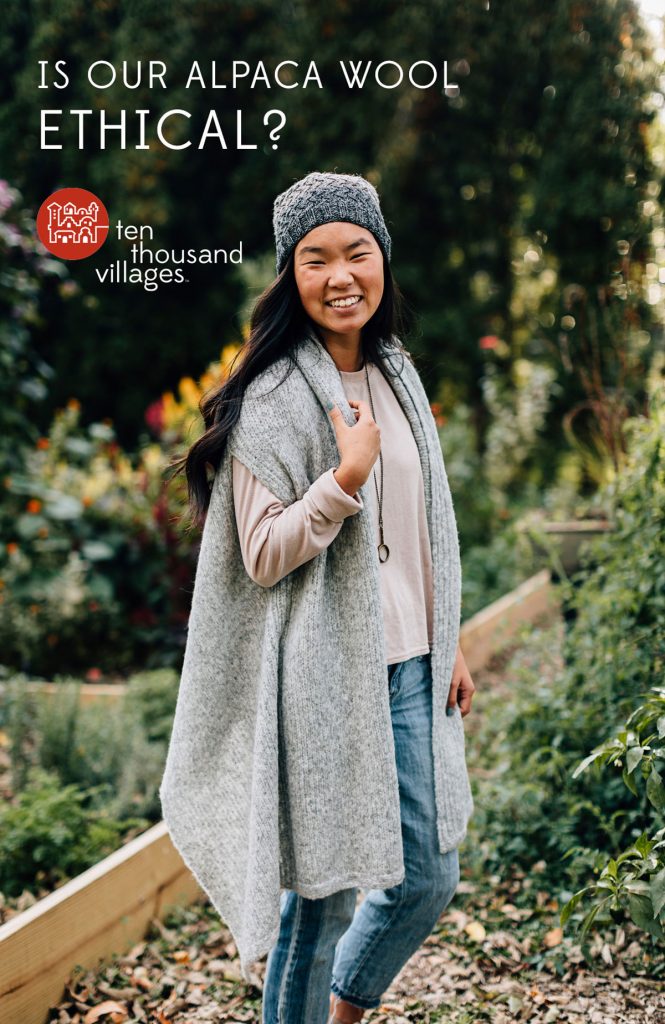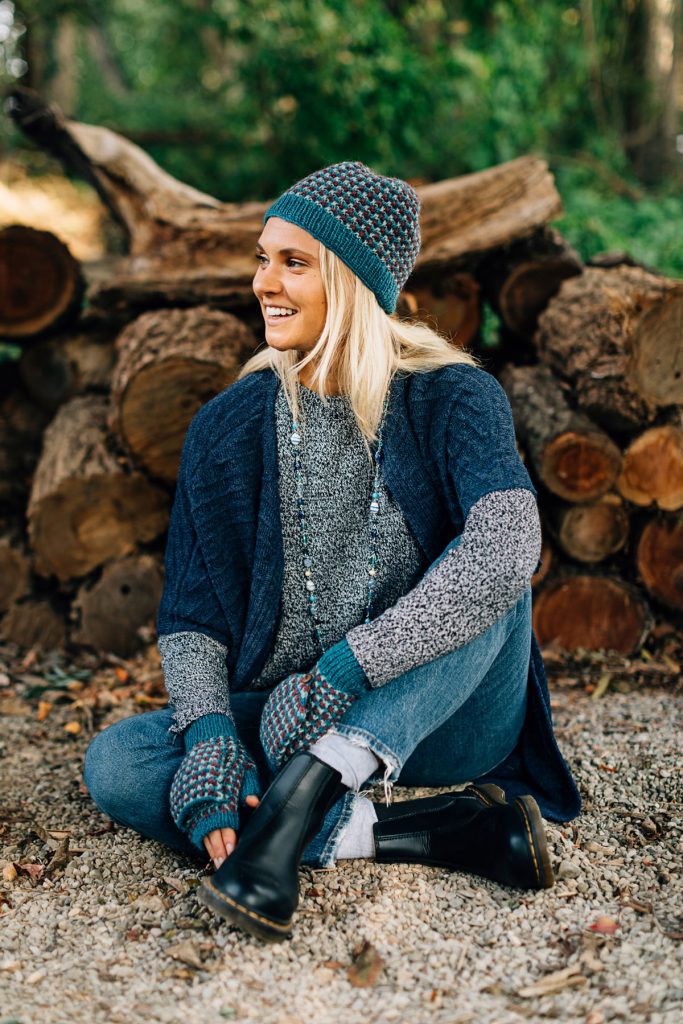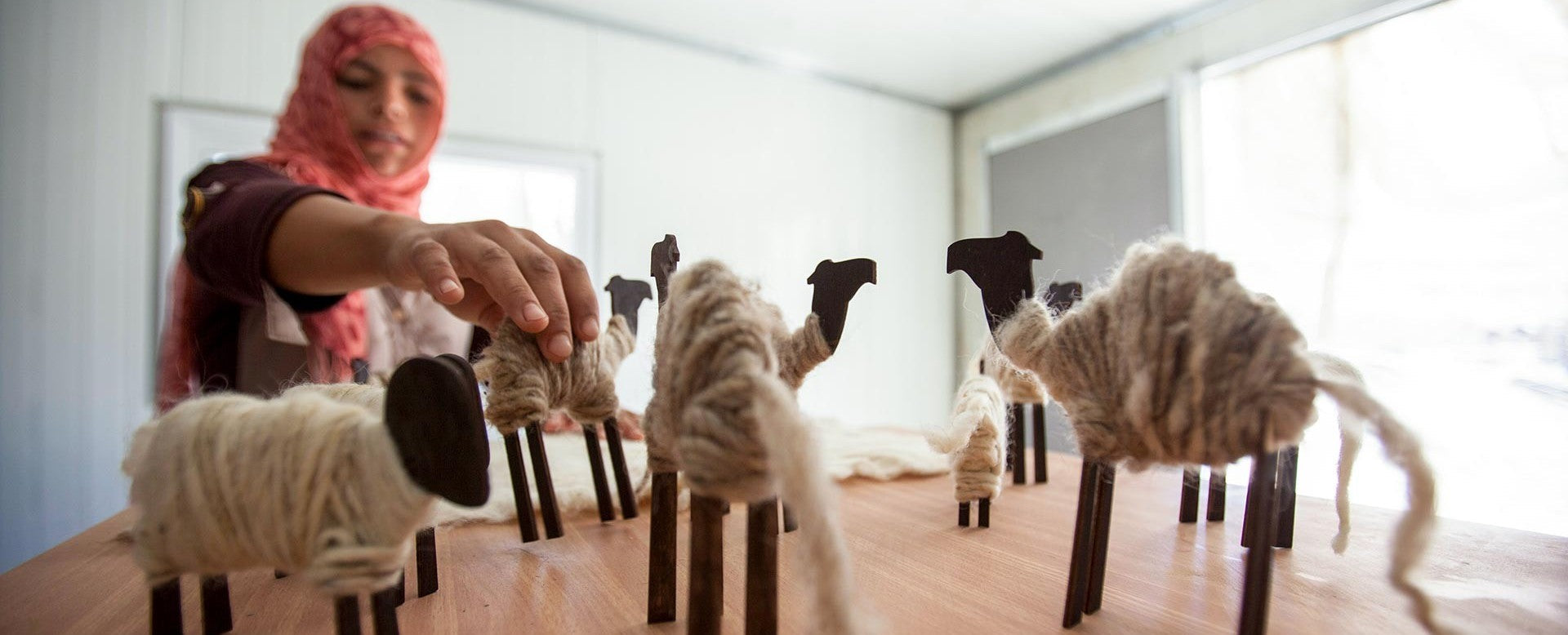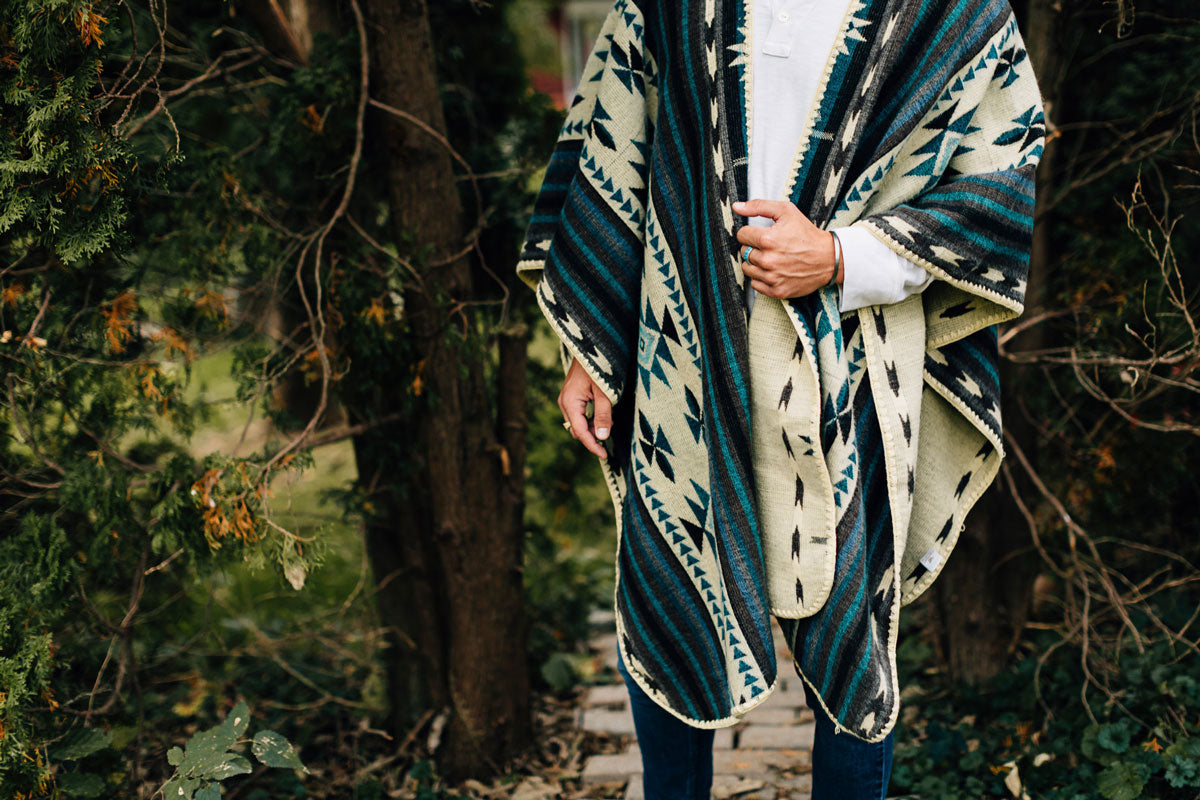Is Our Alpaca Wool Ethical?

There’s a whole lot to love about alpaca fiber. It’s warmer than wool because the hollow fibers provide better insulation. The diameter of each fiber is quite small, making alpaca wool incredibly soft and snuggly. Alpaca fiber is also hypoallergic because it does not contain lanolin, a wax secreted by other animals whose fiber is used for wool production. This makes alpaca wool winter wear great for gifting because you never have to worry that your loved one will have an allergic reaction.

Although the benefits to alpaca fiber are numerous, one question remains – how can we be sure the alpacas from which the fiber is sourced are treated humanely?
All of Ten Thousand Villages’ alpaca fiber gifts come from Allpa in Peru, our fair trade partner for more than 30 years. They shared the details about the sourcing of their alpaca fiber, so that you can rest assured that your alpaca wool gift is ethical from start to finish.
Where does the alpaca fiber come from?
The alpaca fiber used by Allpa to craft cozy winter wear gifts is sourced from Andean communities in Southern Peru. The shearers use a technique called Inca shearing. This technique stipulates that the animal is treated with care to make the shearing process less stressful for the alpacas, and the shearing occurs in hygienic conditions.

What’s the deal with baby alpaca fiber?
Don’t worry, no baby alpacas were harmed in the sourcing of this fiber! It actually comes from full-grown alpacas, but the difference is that it is sourced from the alpaca’s back. Like all animals, alpacas don’t mind getting messy, so their fleece can get a little dirty; however, the fleece on their back generally stays clean, making the fiber sheared from that area higher quality. Leave itchy wools behind with a luxuriously soft baby alpaca winter wear accessory.
Why source alpaca wool from Peru?
Alpacas have been living in Peru for thousands of years and can even be found depicted in millennia-old cave paintings. Alpacas graze on icchu, a grass that grows at high altitudes in Peru. Alpaca fiber manufacturing provides jobs to many Peruvians, and through our fair trade partnership with Allpa, artisans involved in the process of crafting alpaca wool gifts receive a fair wage in safe working conditions.

How do I care for my alpaca winter wear?
- Hand washing your alpaca garments and textiles is the most gentle method for long lasting life.
- Wash in cold water with mild soap by soaking and gently moving around in the water. It is very important not to stretch, twist, or ring the items or cause any agitation. When Alpaca fibers are wet they can weaken and be easily stretched out of shape.
- Gently pressing the garment to remove excess water is the best way to dry the garment.
- Pro tip: To get as much water out before laying the garment flat to dry, lay a towel out flat, then lay your garment on top of the towel, shaping it as best you can. Roll up the towel with the garment and gently squeeze allowing the towel to soak up the excess water. Unroll and lay the garment out flat to finish drying. This really is a great tip for all garments that are hand wash only, not just for alpaca!
- For stains, dry cleaning is your best solution, but due to alpaca’s water-resistant properties, you can simply blot away any spills. Another benefit to alpaca fiber is that it reduces static electricity, which attracts dust and soil.
- Avoid hanging garments and store flat, folded away. Hanging can cause the item to stretch out.
Wow your loved one with a warm, eye-catching scarf, wrap, or cardigan made from alpaca fiber sourced from alpacas raised in humane conditions. It’s an ethical gift they’ll love for years to come.
(psst… We’ve got tips on gifting winter wear with confidence.)





Comments